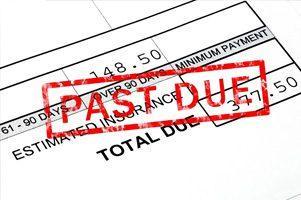How to Respond When Debt Goes to Collections?

‘Debt’ is one word that everyone dreads. If you are the one to face a string of debts, be sure to get calls from debt collectors asking for payment if the amount exceeds the limit. Before you pay the debt amount, it is necessary to know how it happens. While you need to know why your debt goes to collections, you must know how to respond to the collection notice. Talk to Nelson, Cooper, & Ortiz to find out how they deal with businesses that are in severe debt. Here are some of the best ways to respond to debt collection:
How debt goes to collections?
Debt collection is a long process that begins when you stop paying for the loans and it usually begins about 30 days after the last date. If the payments are left unpaid for a long time, your accounts may be termed delinquent. It is then that you start receiving calls from debt collectors. Typically, the collectors and the company give up on the attempts of collection. The creditor may sell the debts to collection agency services and you may receive notices from them.
 How to respond when your debt goes to collection?
How to respond when your debt goes to collection?
Are you in deep trouble with a string of debts? Do not rush to any decision and make the situation worse. Here is how to deal with a commercial collection agency in Houston.
-
Get the facts right
The first step in this step-by-step guide to respond to debt collectors is to not feel overwhelmed when the agencies contact you. Instead, try to get a letter of validation from them. Verify the details mentioned in the letter, such as your age, the amount you owe, and your debt history. Besides, you need to go through the credit reports to find out whether the details in the validation letter match them or not.
-
Choose a roadmap
You cannot get rid of the debts overnight but preparing a roadmap helps you handle the situation better when your debt goes to collection.
- You have several different ways to pay your debts. However, you must not expose your bank details to the agency; rather work out a settlement plan with them and get it in writing so that you can hold them responsible.
- If the debt amount against your name is not yours, you get the opportunity to dispute the amount or if you have already repaid a chunk of it.
-
Explore options for payment
When it comes to paying off debt, you’ve got two main options: paying a lump sum or setting up a repayment plan.
The right choice for you depends on your financial situation and the amount you owe. Take a close look at your budget and figure out what you can realistically afford to pay. You might be able to negotiate a repayment plan that’s less than the original amount, or you could consider working with a credit counselor or exploring a debt management plan.
Call the agency
If you are ready to deal with the debt recovery services in Houston, once you evaluate the amount and come up with a plan, call them. When communicating with them over the phone, you can take notes on the information and remember the name of the person you are speaking to.
Negotiating the debt on your own or calling the collector can be intimidating. If you are already feeling distraught with debts, try to get help from third-party services. At Nelson, Cooper & Ortiz, we work with attorneys and help businesses come out of a debt situation. Call us at (713) 360-6645, if you are finding it hard to handle past overdue accounts.
FAQs:
- What is the 7-7-7 rule in collections?
The 777 rule in debt collection is a guideline that limits how often a debt collector can contact you. Basically, they can’t call or reach out more than 7 times within a week. Plus, if they’ve already spoken to you about a debt, they need to wait 7 days before contacting you again. This rule is in place to prevent harassment and protect consumers.
- What is the 80-20 rule in collection?
The 80-20 rule in debt collection is a principle suggesting that 80% of debts are often collected from 20% of debtors. This means a small portion of debtors contribute to a large portion of the collected amount.
- What happens if a debt collector refuses payment?
If a debt collector refuses your payment, it can be frustrating and confusing. Here are some possible reasons why they might refuse:
- The payment amount is less than the agreed-upon amount.
- The payment method is not acceptable.
- A debt collector is not authorized to accept payments
You can:
- Ask the debt collector to clarify why they refused the payment.
- Confirm the debt amount and payment terms.
- Offer an alternative payment method.
- Escalate the issue to a supervisor or seek professional help.
 Know More
Know More Know More
Know More Know More
Know More Know More
Know More